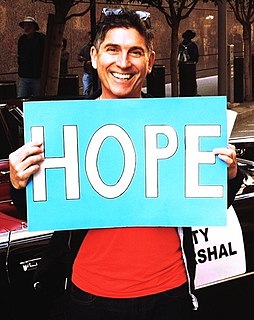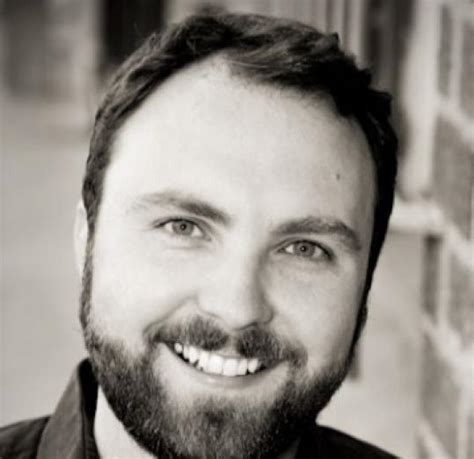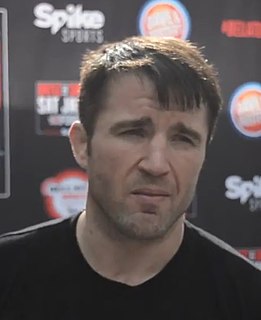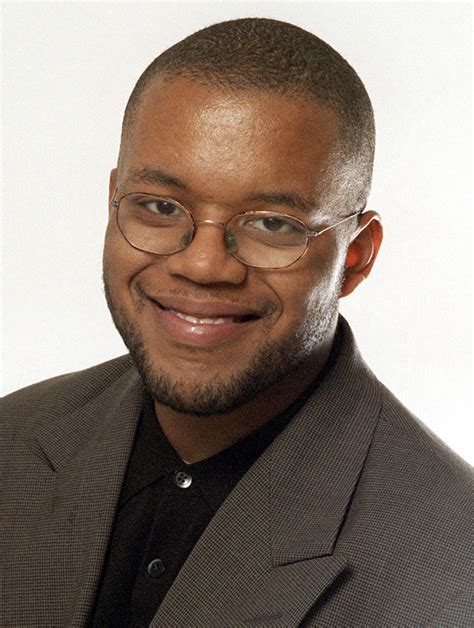A Quote by Martin Short
All the actor does is, he tries to get as many takes as he can out of the director that day. So he can walk away and say to himself, "Hey, it's in there. I'm not going to edit it. I'm not going to make those choices. If they want to blow it, it's fine. But I've done all I can." You're right. I'm always amazed when actors bash films as if those grips and that cinematographer didn't work hard enough.
Related Quotes
When you get older, you realize something: all those stupid mores and customs related to how a man should comport himself in the "game" of courtship are just that - stupid. Age affords you this blend of apathy and confidence - with a little bit of wisdom thrown in - that allows you to say, "Hey, I am attracted that girl over there, so I'm going to introduce myself. If it doesn't work out, that's fine. If it does, terrific. Either way, I lose nothing for trying."
As soon as you hear a fighter say, "I'm working smarter, not harder," you always want to bet against that guy. That mentality does not work. You have to work hard. And sometimes that means you are going to work too hard. You are going to decline. You are going to tear down your body and your muscle fibers. You are going to get sick.
I do not make films which are prescriptive, and I do not make films that are conclusive. You do not walk out of my films with a clear feeling about what is right and wrong. They're ambivalent. You walk away with work to do. My films are a sort of investigation. They ask questions . . .. Sometimes I hear that some [Hollywood] studio is interested in me. Then they discover that this is the guy who works with no script, that there is no casting discussion, no interference, that I have the final cut, and that does it.
In the old days when I first was coming up, you would turn up on set in the morning with your coffee, script, and hangover and you would figure out what you were going to do with the day and how you were going to play the scenes. You would rehearse and then invite the crew in to watch the actors go through the scenes. The actors would go away to makeup and costume and the director and the DP would work out how they were going to cover what the actors had just done.
See, the first thing about actors is, you're just trying to get a job; and you audition and audition and you finally get them. And you still consider yourself an auditioning actor. I auditioned for One Fine Day, I wasn't offered that. So you're still in that 'Hey, I'm just trying to get a job' thing. Then, you get to the point where, if you decide to do it, then they'll make the film. That's a different kind of responsibility, and it usually takes a couple of films to catch up. And then you have to actually pay attention to the kind of films that you're making.
If I'm the president of the United States, I walk right into Union Square, I set up my little presidential podium, and I say, 'Listen, citizens of San Francisco, if you vote against military recruiting, you're not going to get another nickel in federal funds. Fine. You want to be your own country? Go right ahead. And if Al Qaeda comes in here and blows you up, we're not going to do anything about it. We're going to say, look, every other place in America is off limits to you, except San Francisco. You want to blow up the Coit Tower? Go ahead.'
I love the variety of films. In theater, you go into a room and the director runs the room, so you all work to his or her method. On film, if an actor or an actress is in for a day or two, the director has to get out of that actor what they need, so they have to change and adapt to that actor's technique.
I guess I say this for younger actors out there: you have to be brave, and you have to be ready to fail, and that's the only way you can be unique. So when a director is confident enough in what they're doing, and they allow their actors to be brave and bring in stuff, the more likely it's going to work out okay.
I learn a lot as a director from acting in other people's films and just in general. I want to try and be as involved in the art of filmmaking as possible. I feel that the only way to really do that is to take on as many roles as possible, whether it be as an actor, an editor, a director, a cinematographer. Basically, I like to help and be involved, so anything anybody asks me to do, my first reaction is to say "Yes."
My interest is to point out to you that you can walk, and please throw away all those crutches. If you are really handicapped, I wouldn’t advise you to do any such thing. But you are made to feel by other people that you are handicapped so that they could sell you those crutches. Throw them away and you can walk. That’s all that I can say. ‘If I fall....’ - that is your fear. Put the crutches away, and you are not going to fall.
My job as an actor is to try to do what the director wants me to do. I'm going to do everything I can to incorporate that note and make it work. If it doesn't work, I'll try this kind of thing, and "How do you feel about that?" If you are at odds with the director, neither one of you is going to get anywhere. You really do have to be able to make both of you happy. Even when I was younger, there were times when you have to find a way to make it work for both of you.




































